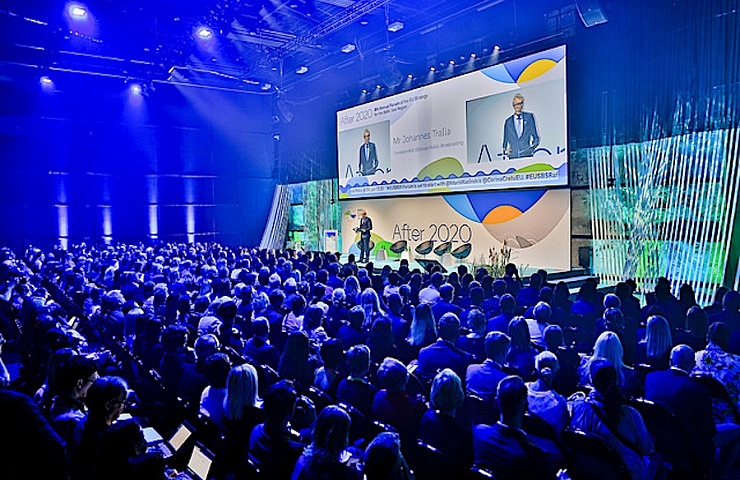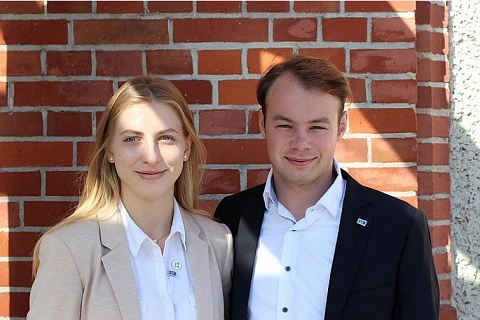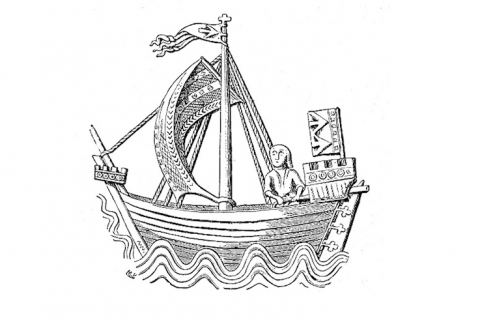Crowds at Tallinn Creative Hub during 9th Annual European Union Strategy for Baltic Sea Region (EUSBSR) Forum in Estonia (4-5.06.2018), proved that there are lots of enthusiasts of Baltic Sea Region cooperation, which is a great sign in times, when so much is being discussed about the rules of cooperation between EU member states.
The striking feature of the Forum was a diverse participation of stakeholders starting with three prime ministers, a vice-president, EU commissioner and so on through regional and local authorities to NGOs and a vast group of people involved in transnational projects.‘It showed a remarkable interest in the Strategy. It showed that EUSBSR forum is the best place to discuss the cooperation of Baltic Sea Region. Also, intensive debates and twenty one seminars which were organized within just two days of the Forum proved that there is a willingness among stakeholders to move forward’, said Raul Mälk, a former Minister of Foreign Affairs of Estonia and the Chair of the National Coordinators group of the EUSBSR in an interview to Let’s Communicate! Project.
During the debates at the Forum issues were raised about what makes the progress slower. Such debates are crucial, however, and Mr. Mälk praised on them because to his mind one of the wider tasks of the EUSBSR and three other macro regional strategies of the EU is to spread the experience and enthusiasm to lead to a raise of new macro regional strategies in the parts of Europe where they do not have them now.
“During different discussions we had a feeling that the countries which are involved in macro-regional strategies, are somehow more optimistic, more active than those countries which are for now not a part of any macro-regional strategy. So new additional macro-regional strategies would be a good step forward ’’, he pointed out.
Development of the discussions
And what are the actual benefits of macro-regional strategies? Well, when you just visit Tallinn after 8 years, when the first annual forum of the EUSBSR took place, you see a lot of differences. Obviously, it is always quite difficult to define the results of EUSBSR in figures because it works via different stakeholders and to define finally that this was a result of the EUSBSR or that wasn’t it’s not always very simple. But according to Mr Mälk, EUSBSR gave more focus to the Region. ‘It’s because of all the policy discussions, discussions on paths to follow, implementing national and regional plans, keeping the networks running, projects,…there is a list of contribution of EUSBSR. There are not only projects, as it is often said’ , he explained.
Success Story
The biggest success of the EUSBSR, as any other macro-regional strategy should be, is that people who are interested to do something together have a structure, have a network, have annual forums, etc to find each other to cooperate, to exchange experiences, to have policy discussions, and so on. Mr Mälk also stressed that t o keep a macro-regional strategy vital, it means also to look to the future, to strengthen the activities in which we are good and strong and maybe narrow the scope of supporting activities….
’As for the EUSBSR, there will be from Autumn 2018 the revision of the Action Plan, when all the discussions started during the Forum can be continued and the changes proposed- implemented’, he explained.
Referring to the EUSBSR, Mr Mälk underlined that “it is the first macro-regional strategy of the EU, so we somehow explore the unknown waters. It maybe difficult, it takes time, but until people who really do something, see that the macro regional cooperation is needed, the EUSBSR is alive and ready to progress.”
Plastic System around the Baltic Sea
Just one example – during the Forum in Tallinn, Estonian Minister of Environment proposed a system around the Baltic Sea for utilization plastic, especially plastic bottles. Now all such systems are national. You buy a plastic bottle in a shop, you pay some amount, use and give it back. But if it’sbought outside your country it ends up in a rubbish basket. You cannot give it back abroad. And plastic is an urging problem.
‘We still livewith plastic from 1950s. So we need a very practical cooperation in this matter and a transnational, pan Baltic system that could cope with plastic garbage. This idea is practical and manageable. So, let’s do it! There are issues that can be solved only on the level of the EU, and some which are not so international, can be easily tackled on for instance, macro-regional level’, MrMälk said.
There are a lot of committed stakeholders in the region and a cross-sectoral mode of cooperation promoted by the macro-regional strategies increases the chances of successful implementation of such solutions. So these are probably the biggest assets of macro-regional strategies, which if properly used can make a real difference, helping each region to face its most urging challenges.
…………………
*Marta Czarnecka-Gallas is a coordinator of Let’s Communicate Project, which serves as the communication point of EUSBSR, within Pomorskie in the EU Association.
**The EU Strategy for the Baltic Sea Region (EUSBSR), adopted in 2009, is the first Macro-regional Strategy in Europe. It is an agreement between the EU Member States and the European Commission aiming at strengthening cooperation between the countries bordering the Baltic Sea. The EUSBSR is divided into three objectives: save the sea, connect the region and increase prosperity. The key focus of the EUSBSR is on joint problem-solving and the many opportunities that regional cooperation provides.
…………………………
“Let’s Communicate!” project, which functions as the Communication Point of the EUSBSR, launches a series of articles focused on EUSBSR priorities in order to promote the success stories and cooperation within the Strategy framework. The project is co-funded by the Interreg Baltic Sea Region Programme.

 Deutsch
Deutsch




Leave a Reply